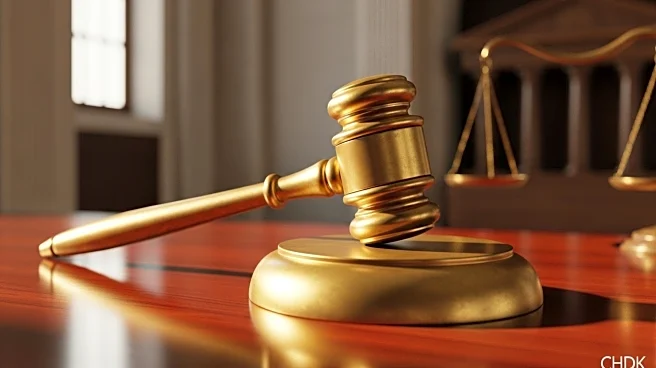What's Happening?
A federal judge has upheld a provision of Georgia's election law, Senate Bill 202, which restricts third-party groups from distributing absentee ballot applications. The law, passed in 2021, was part of a broader overhaul of Georgia's election procedures following unproven claims of voter fraud in the 2020 presidential election. U.S. District Judge J.P. Boulee ruled that the state has a compelling interest in reducing voter confusion and enhancing electoral efficiency. The decision has been praised by Georgia Secretary of State Brad Raffensperger, who argues that the law ensures fair and secure elections.
Why It's Important?
The ruling is significant as it upholds a controversial aspect of Georgia's election law, which has been criticized by voting rights groups for potentially limiting voter access. The decision may impact how absentee voting is conducted in future elections, particularly in states with similar laws. It also reflects ongoing debates over election integrity and voter access, issues that have become increasingly polarized in U.S. politics. The ruling could set a precedent for other states considering similar restrictions on absentee voting.
What's Next?
Voting rights groups have expressed their intention to continue challenging the law, citing concerns over free speech and voter access. The case may proceed to higher courts, potentially reaching the Supreme Court. The outcome could influence future election laws and policies across the United States, particularly in states with contentious election practices.









